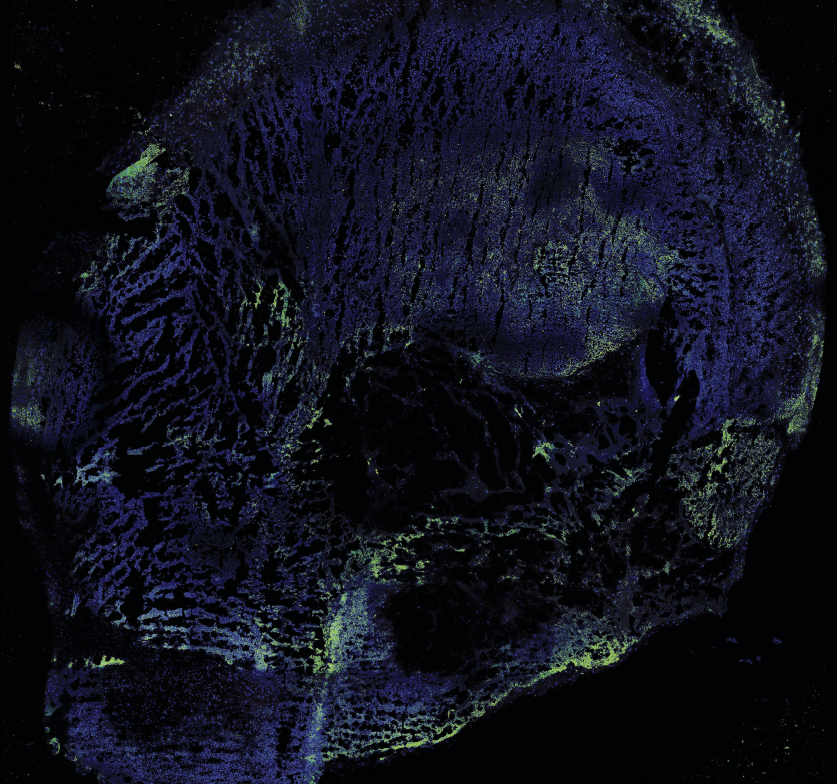Brain
Gain
One year.
Many discoveries.
One year.
Many discoveries.

Reshaping cognitive care.
Researchers led by Dr. Manuel Montero-Odasso found combining computerized cognitive training and aerobic-resistance exercises can significantly improve cognitive functions, such as memory, attention, recognition, and orientation, in older adults with Mild Cognitive Impairment.
Learn moreExploring how short-term episodic memories are stored.
Julio Martinez-Trujillo has found the sequence in which neurons become active in the brain's lateral prefrontal cortex temporarily stores short 'video clips,' allowing a person to remember how to reach a goal or target based on previous experiences. These neural activation sequences enable complex mental representations that support high-level cognition, planning, and creativity in humans and other primates.
Resisting Alzheimer’s.
In its first human trial, Taylor Schmitz and team have shown how a new drug called LM11A-31 enhances the brain’s own resistance to Alzheimer’s by helping to slow the damage caused by the disease.
Learn moreNew insights into Alzheimer’s and the female brain.
Alzheimer’s disproportionately affects women, who represent about two-thirds of those diagnosed with the disease. Marco and Vania Prado showed female sex hormones influence the development of one type of Alzheimer’s pathology in the female brain, cholinergic dysfunction, highlighting the need for research to account for sex differences.
Learn moreA link between chronic pain and cognition.
How does chronic pain affect the brain’s ability to manage important cognitive tasks? Dave Seminowicz and his team revealed the role of the claustrum in altering cognitive function in migraine patients experiencing chronic pain, providing the first evidence of a possible mechanism driving cognitive impairments in chronic pain sufferers.
Learn moreA clearer picture of blood flow.
Ali Khan and fellow researchers have pioneered a blood flow technique in the hippocampus using Schulich Medicine & Dentistry’s world-renowned MRI capabilities. The technique reveals changes caused by disease or age and could aid in the diagnosis of neurological diseases and help promote healthy aging.
Learn moreVaccination may reduce memory loss.
Dr. Robyn Klein and her team have identified a specific protein that seems to be driving memory loss associated with COVID-19. There appears to be a promising correlation between vaccination and reduction in levels of this protein and cognitive impairments such as memory loss.
Learn moreImpact of PTSD on self-perception.
A study by Ruth Lanius and team found individuals with PTSD show decreased connectivity between the flocculus, a brain region that regulates neck, head and eye movements, and brain networks involved in self-reflection, internal thoughts and processing past experiences. The study showed that loss of this connection can affect the maintenance of a coherent sense of self in PTSD patients.

ALS breakthrough
A tiny protein fragment derived from a unique RNA binding protein called RGNEF, discovered by the laboratory of clinician-scientist Dr. Michael Strong, may hold the key to halting the nerve cell death that is a hallmark of ALS. In animal models, the approach notably extended lifespan, improved motor functions and prevented nerve cell degeneration.
Learn morePromise in stroke recovery
Minocycline, a common antibiotic, may have beneficial effects for restoring brain health following a stroke. The study by the Shawn Whitehead, BSc Honors’00, PhD’05, lab revealed the antibiotic improved blood flow to stroke-affected brain regions and reduced brain inflammation in animal models.
Learn moreAI recovery predictions
Recovery from brain injury is a critical yet complex challenge. Using AI and functional magnetic resonance imaging (fMRI), researchers in Adrian Owen’s lab predicted patients who would recover with more accuracy than ever before.
Learn moreSmoking and teenage mental health
Professor Steven Laviolette simulated the effects of vaping in humans using animal models, revealing the impact of nicotine on teenage mental health. The work revealed a compound, N-acetylcysteine, which acts as an antioxidant to block brain inflammation caused by nicotine, offers a promising avenue for treating its effects.
Learn moreUnderstanding how the brain perceives sights and sounds
When sights and sounds occur at similar times in our environment, we tend to think they arose from the same event, even if they did not. This perception can be exaggerated in autism. Brian Allman, BSc Honors’98, PhD’04, has revealed that the perception of sights and sounds is influenced by the fine balance of certain chemicals in the brain, which may help explain the differences in how people with autism experience sensory stimulation.
Previous story

Next story


Invest in the future!
Take a minute to update your contact information so we can let you know about benefits, opportunities and events exclusive to alumni. And consider how you can support the next generation of leaders at Schulich Medicine & Dentistry.









